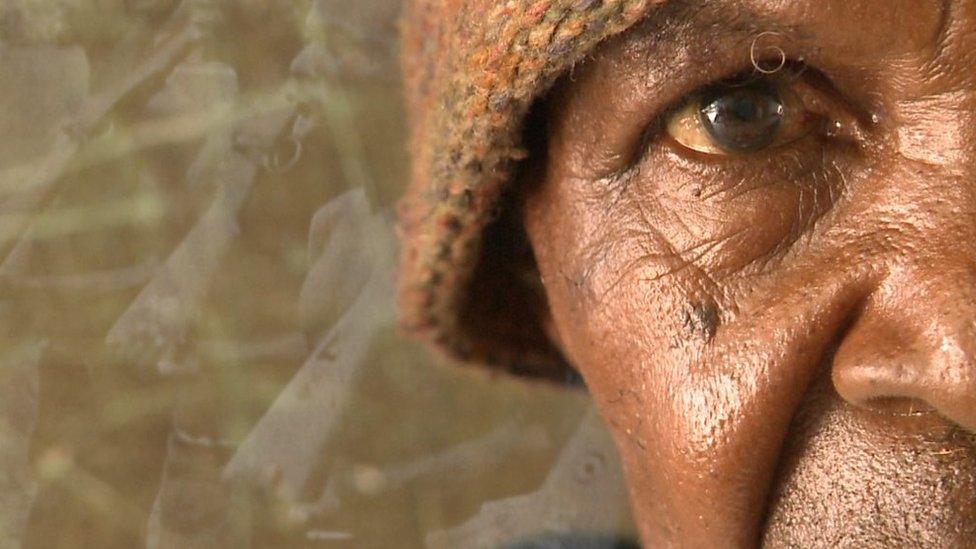Nnamdi Kanu: Nigerian court drops charges against separatist Ipob leader
- Published
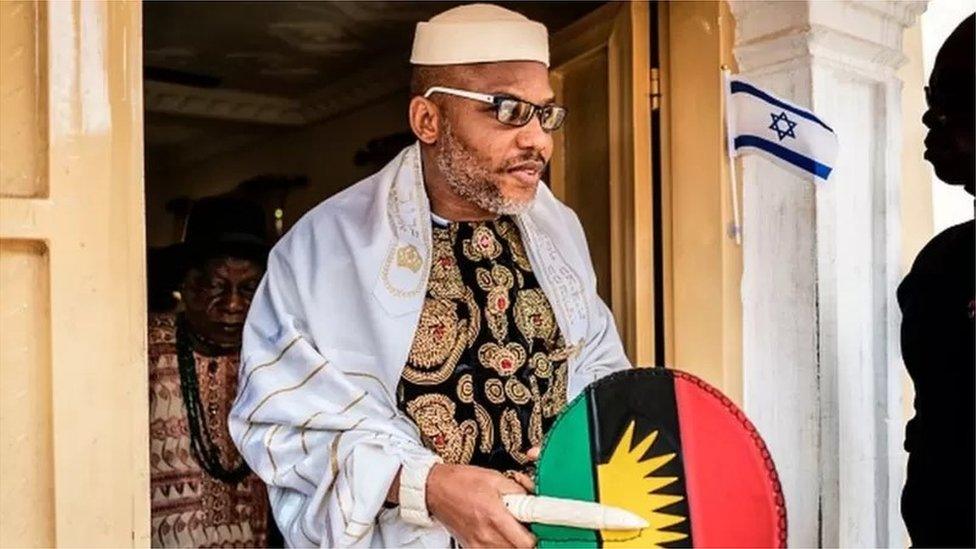
Nnamdi Kanu - who holds a UK passport - fled Nigeria in 2017 before being arrested in 2021
Nigeria's Appeal Court has dropped all charges against separatist leader Nnamdi Kanu after ruling that he had been illegally arrested abroad.
The court also ruled that his extradition was illegal.
The ruling by a panel of three judges is seen as a major blow to the government which had detained Mr Kanu on various treason and terrorism-related charges.
But the government says it will explore other legal options.
"Kanu was only discharged and not acquitted," said a spokesperson for Attorney General Abubakar Malami, so it appears unlikely he will be freed imminently.
The Attorney General's office added that the court's decision was only based on the extradition of Mr Kanu, and did not apply to those charges that predate it which "remain valid issues for judicial determination".
The leader of the banned Indigenous People of Biafra (Ipob) group was originally arrested in 2015 but he fled Nigeria in 2017 while out on bail.
He has denied any wrongdoing.
Ipob is campaigning for the creation of an independent state in south-eastern Nigeria.
Mr Kanu - who holds a UK passport - was seized and sent back home in 2021.
His lawyers say he was detained in Kenya, which has not commented on whether it played a role in Mr Kanu's deportation to Nigeria.
The Appeal Court also ruled the Federal High Court did not have the jurisdiction to try Mr Kanu.
He initially faced 15 charges, but eight had previously been dropped.
Will Nnamdi Kanu be released?
The court's ruling means there is nothing to stop Mr Kanu being re-arraigned on different charges, constitutional and human rights lawyer Luka Musa Haruna told the BBC.
However, the ruling means Mr Kanu was now technically a "free man", Mr Haruna said, adding that "the federal government should comply with the judgement and release Nnamdi Kanu".
Mr Kanu's lawyers are demanding that the authorities free him.
One said "no new charges can ever stick" against Mr Kanu because "the extraordinary rendition has created a permanent barrier to his prosecution. He must be released first," Aloy Ejimakor said on Twitter., external He also added that Mr Kanu should be free to travel without hinderance.
Another of his lawyers, Ifeanyi Ejiofor, told the BBC on Friday afternoon that Mr Kanu had not yet been freed but that they were in the process of seeking his release in line with the court order.
The Nigerian authorities have not indicated whether Mr Kanu will be released.
The desire for a south-eastern state separate to Nigeria is decades old.
In 1967 ethnic Igbo leaders declared independence for the state of Biafra, but after a civil war, which led to the deaths of up to a million people, the secessionist rebellion was defeated. It has now been reawakened in the form of Ipob.
Related topics
- Published5 May 2017
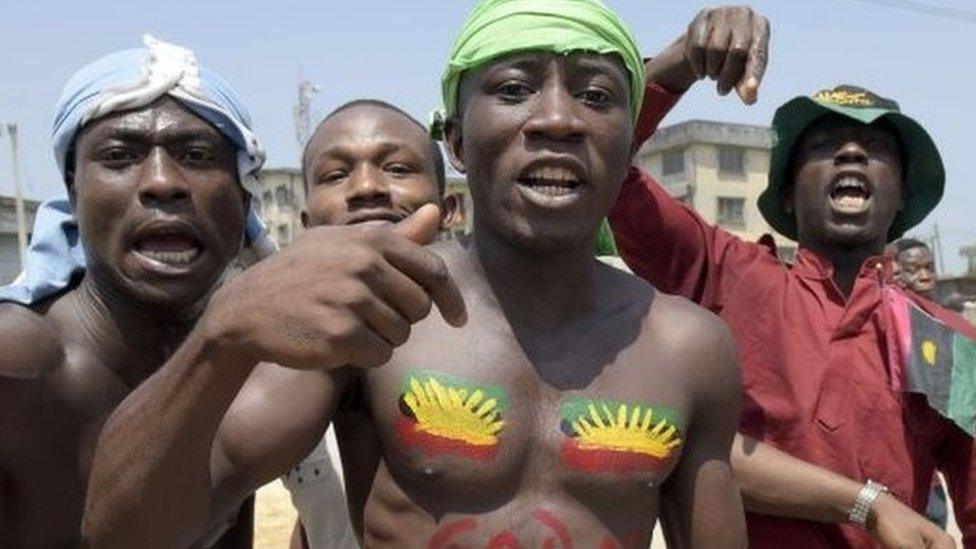
- Published15 January 2020
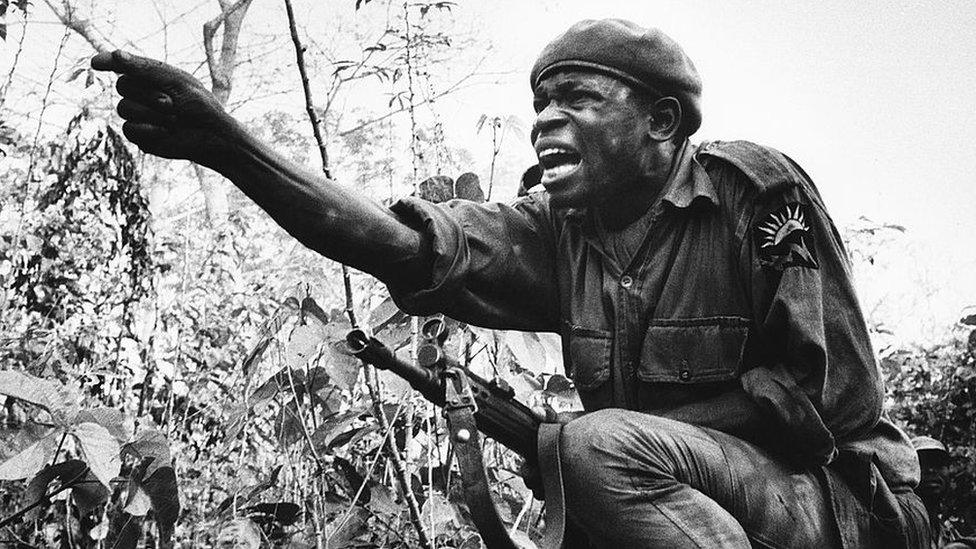
- Published5 July 2017
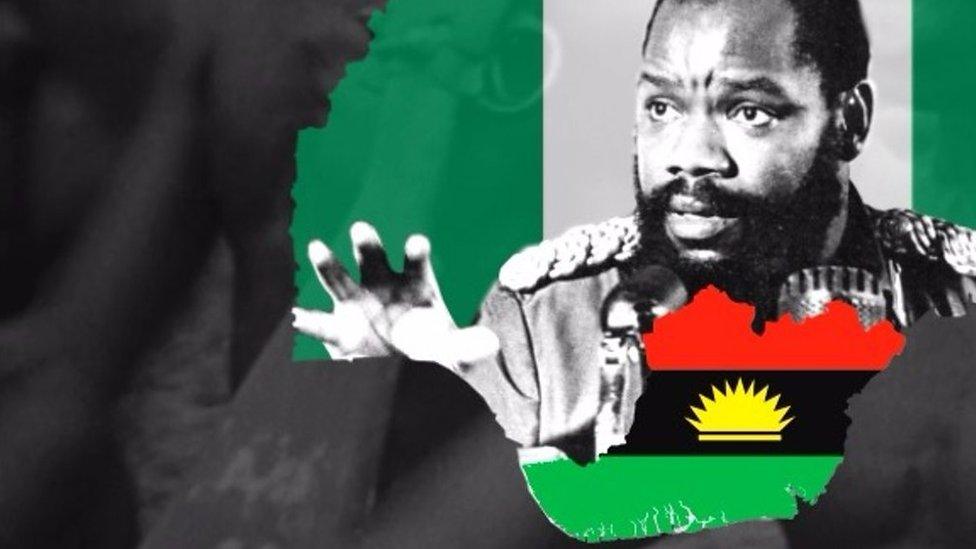
- Published6 July 2017
